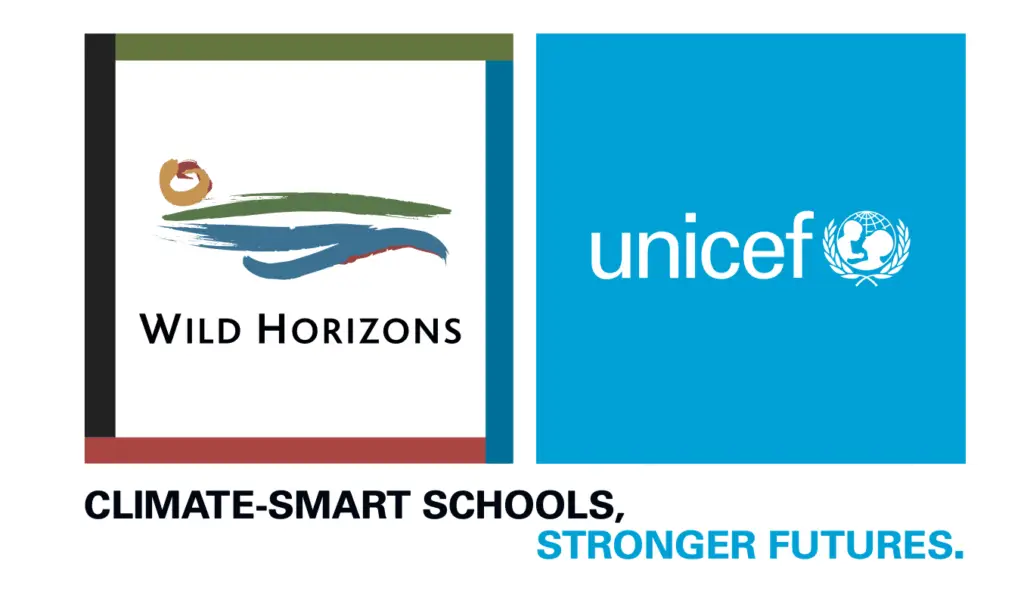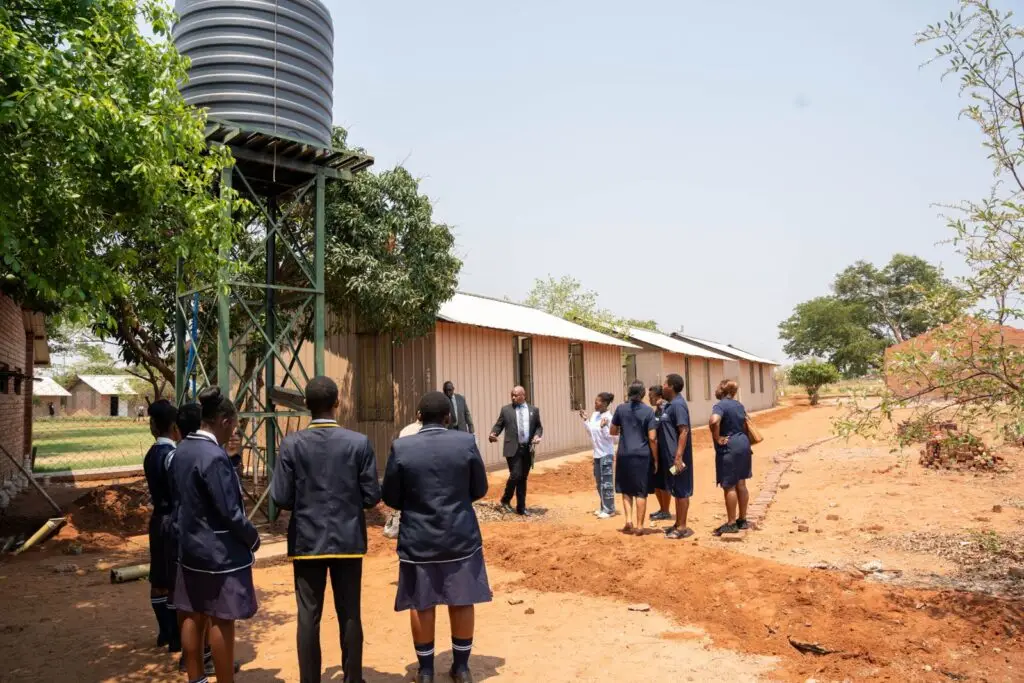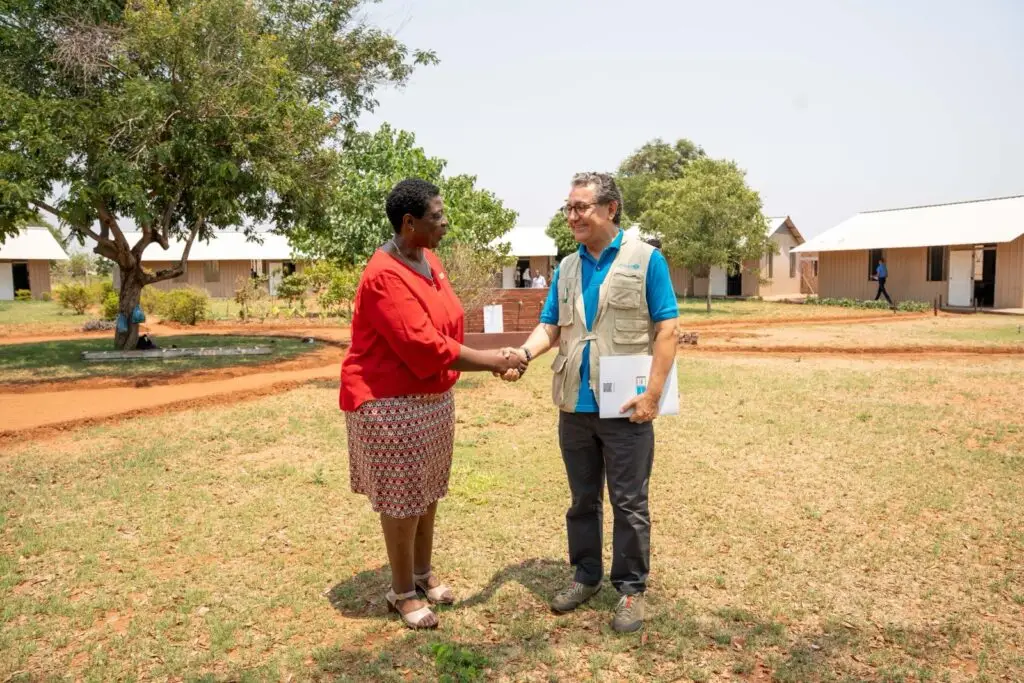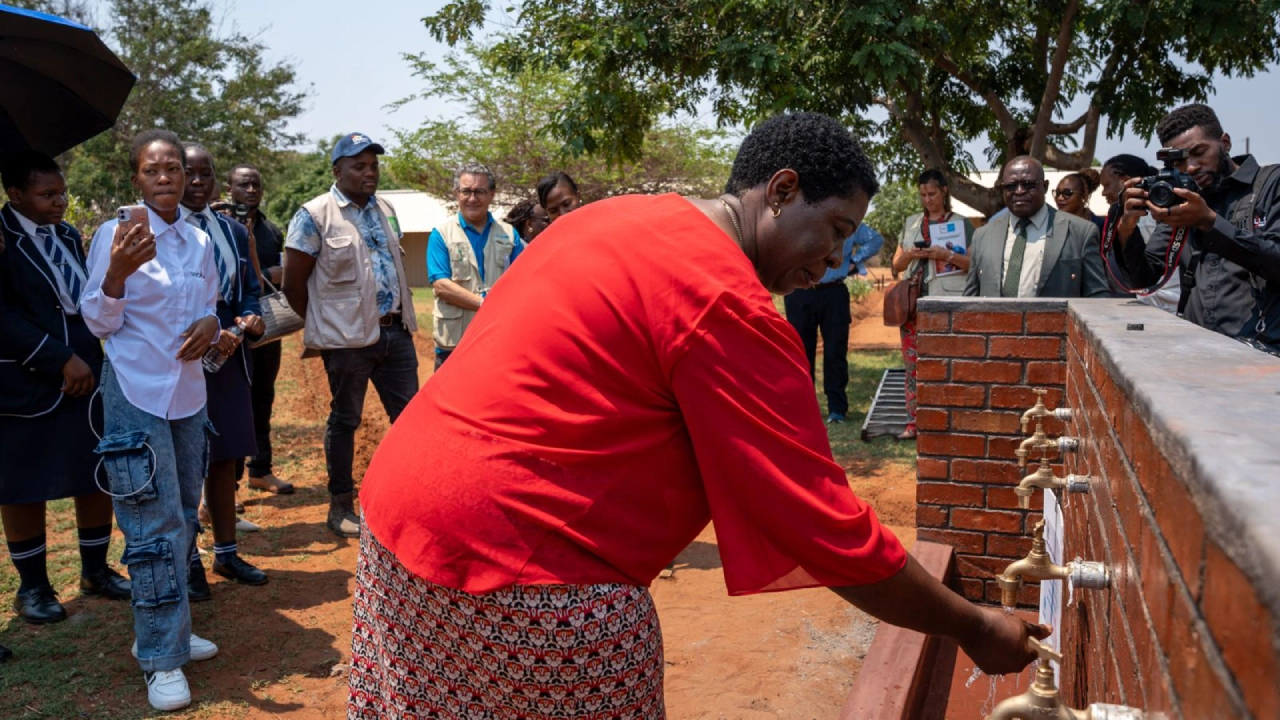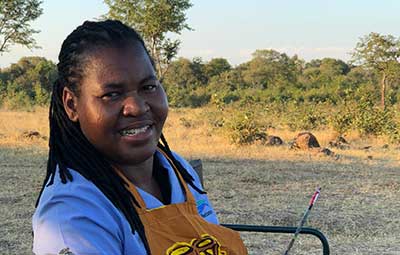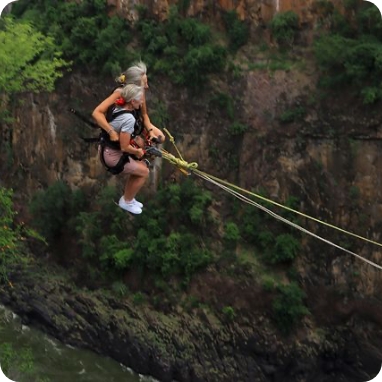UNICEF Zimbabwe and Wild Horizons have partnered to transform local rural schools in the Victoria Falls region into climate-resilient hubs of learning, sustainability, and community well-being. This transformative collaboration reimagines education through the lens of climate action and child-centered development.
UNICEF brings decades of expertise in protecting and advancing children’s rights. Wild Horizons contributes deep community roots and a trusted on-the-ground presence, shaped by years of conservation and community empowerment work. Together, we’re pioneering a scalable model for climate-resilient schools — with real, measurable impact.
What’s Already Underway
In 2025, we launched the initiative in three rural schools — Mkhosana Adventist, Ndlovu, and Sizinda — by installing solar-powered water systems that meet multiple essential needs:
Water & Hygiene:
- Access to clean water has improved hygiene, reduced absenteeism, and supported menstrual health for girls, allowing them to attend school with confidence and dignity.
Health:
- At Ndlovu, a refurbished maternity ward now offers safer childbirth conditions and healthier beginnings for mothers and newborns.
Food & Climate Education:
- School gardens equipped with drip irrigation are not just feeding students — they’re teaching sustainable agriculture and climate-smart farming practices.
Green Jobs & Skills Development:
- Wild Horizons is training youth in solar and water technology, opening pathways to green employment and future-proof careers.
Part of a Larger Ecosystem of Change
These aren’t isolated improvements — they’re integrated elements of a wider shift aligned with Zimbabwe’s Clean Green Agenda and connected to the broader Zambezi River Basin, where over 41 million people face similar climate challenges.
If successful, this model can be expanded to the 40+ schools already supported by Wild Horizons — and even further — with support from KOICA, UK Aid, TUI Care Foundation, and Welthungerhilfe.
A Hopeful Future, Rooted in Local Action
In a world where climate change can feel overwhelming, this partnership offers a refreshing alternative:
A locally grounded, child-focused solution that begins in classrooms and ripples outward — into stronger communities, smarter infrastructure, and a more sustainable future.
